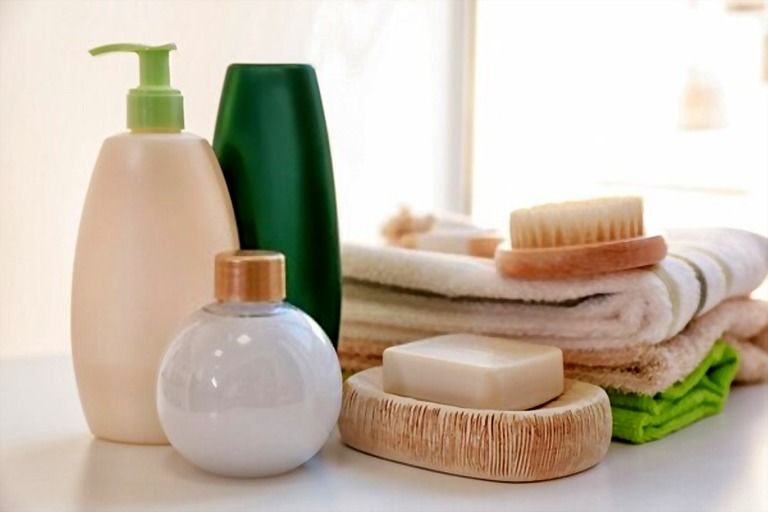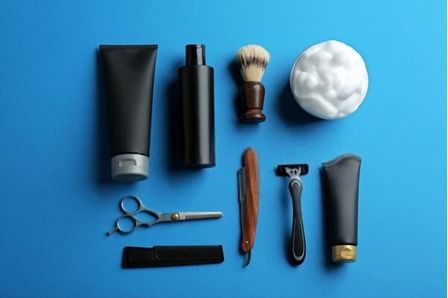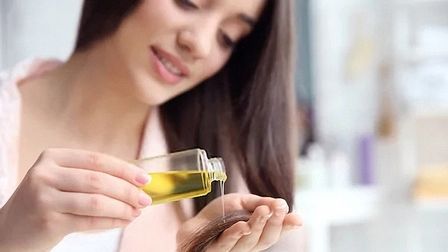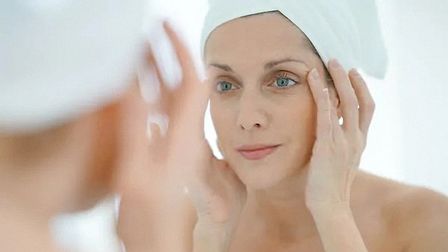
It’s true that millions of outside viruses and germs contracted with you every day can make you sick in some cases once they linger on your body.
That’s why personal hygiene is paramount.
Aside from bathing and hand washing, there are other different types of personal hygiene that you should learn more to make yourself look and feel better.
Types Of Personal Hygiene
Bathing

The frequency of how often to shower is dependent on your personal preference.
While the majority keeps the habit of showering once/day or even twice during the hot summer, some other people prefer to bathe less for some reason, like the frost-bite cold weather.
However, it’s advised at least every other day that you should benefit from a rinse to wash away excess oils, bacteria, and dead skin cells.
It’d better take a shower with body soap, body gel, or if you want it to be more relaxing, try the bath bomb.

Don’t forget to wash your hair at least twice a week to help protect them against irritation and oily residues. Depending on the type of your hair and scalp to choose the right shampoo.
Hand Washing

Your hands are the most common path for germs to infiltrate your body because we usually put in near our nose, mouth, ears, and eyes.
So hand washing is the next important type of personal hygiene.
Remember to wash them:
- Anytime you’ve just touched an animal
- When you sneeze
- If you handle garbage or dirty things
- Before having a meal
- When you handle food
- Before skincare
The same, wash your hands before you’re about to help someone clean themselves, such as changing a baby’s diaper or when cleaning a wound or cut.

There are many specialized products nowadays to help you wash your hands better, such as soaps or hand sanitizers.
Teeth Hygiene

Good dental hygiene will not only give you an aesthetic smile and white teeth but also help avoid cavities and gum diseases.
This process is very simple – with just three steps, taking around 2 or 3 minutes each time – to follow:
- Brush your teeth with a proper toothbrush and toothpaste (at least twice/day after your breakfast and before bed)

- Use an antibacterial mouthwash (if your gum or teeth are sensitive, ask for advice from your dentist)

- Floss between your teeth daily or using an interdental brush

Keeping this good habit for a long time will help keep tooth decay at bay while eliminating pockets efficiently. If you don’t know, these pockets are where germs and bacteria build up the most easily.
Nail Hygiene

First off, stop it if you habitually bite your nails.
This will not only give germs or bacteria a welcoming path to enter your body through your mouth or infections along your nail grooves but also cause unaesthetic nail shape or even some diseases related.
The proper way to hygiene your nails are just as easy as that for your teeth.
A multi-functional nail clipper will help you handle almost all steps of this process.
Start with cleaning dirt or any built-up grime underneath your nails by using a nail pick. Before moving to other steps, remember to wash your hands thoroughly using a mild, natural hand wash.
If you have just done any gardening task or things like that, an extra step of soaking your nails in soapy, warm water for 3 minutes is essential to clean them more deeply.

Now, scrub the top of your nails with a washcloth or nail brush then remove nail polish (if you also wear it). Another wash, please.
It’s advised trimming your nails frequently to keep them clean and short but for girls who prefer to keep them long for styling, remember to deep clean them properly to avoid built-up germs.
For people who have weak nails, I highly recommend using some supplements to strengthen them.
Toilet Hygiene
After using the restroom, ALWAYS wash your hands.

If you have running water, scrub with soap for at least 20 seconds to clean them thoroughly, especially under your nails then wash with water and dry with a clean cloth/towel.
If you go out, remember to bring an alcohol-based hand sanitizer to use if the restroom doesn’t have soap or running water.

Extra Steps
For women
After taking a shower or having sex, it’s advised using feminine products to clean your genitals thoroughly without losing its pH balance.

This step should be more frequent during your period. Remember to change your tampon regularly. Or if you use a monthly cup, clean them properly to avoid built-up germs and other genital diseases.

For men
It’s about your beard.

Remember to trim or shave them neatly and use proper products, such as shaving cream, shaving brush and other. For those who grow a beard, I highly recommend equipping some extra caring products to keep them silky and healthy. For example:
- Beard oil/balm
- Beard wash
- Beard wax
Sickness Hygiene
If unfortunately, you get sick or not feel well, try to take some simple hygiene steps that will help you prevent spreading germs to others.
This includes:
- Through away any soiled tissues immediately
- Not sharing any electronics or utensils
- Use an antibacterial wipe to clean through shared surfaced
- Cover your nose and mouth when sneezing. Then wash your hands.

Tips To Personal Hygiene For Kids More Easily
Teach your kids to sing the ABC song while washing their hands, it’s just 20 to 30 seconds long which is ideal for a washing time.

Encourage them to cut their nails after showering because that’s when the nails are softer and easier to trim
Teach your kids how to wash all different body parts and their hair without getting suds in the eyes

Play a 2-minute song when it’s time for brushing teeth, which will help kids know how long they have to brush
Conclusion
Good habits keep you live healthier.
While many people are getting very used to these personal hygiene steps, I know this whole process is still quite new for some, especially kids. So it’s time to create a proper personal hygiene routine now.
If you don’t remember these steps, setting reminders on your phone, sticking notes in your bathroom, or putting a little sign in the dining room will help a lot. They will push you to the activity and sooner, this will become a habit.
Thanks for reading!




